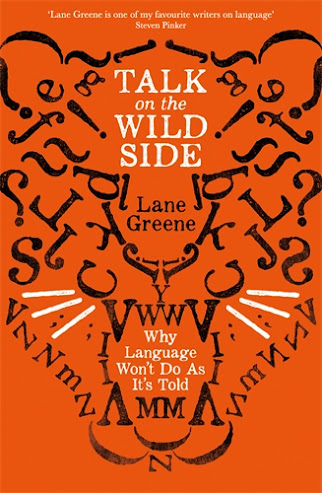Language is a human invention that is bound to evolve with time to suit changing communication needs.
Threat to the existence of languages seems unreal to Lane Greene for whom language is like a wolf, robust, organic and evolving to suit the changing conditions in the wild. With infectious enthusiasm, the polyglot columnist considers the deep strangeness of language to be its savior against potential vulnerability. After all it is a human invention that is bound to evolve with time with different users contextualizing it to suit their communication needs. If that be so, why shifts in expressions and meanings of words should be worrisome? It is only the purists who love one dialect may take it as an imminent sign of linguistic ruin.
Written words do abide by grammatical conventions, but it is the spoken language which is continually in flux ‘providing speaker a menu of options for getting ideas effectively into the reader’s mind.’ Each language has two sides to it - one formal and the other normal, with the formal having a limited role. Profiling the changes that are sweeping the language (English), Greene wonders when the purists will appreciate normal English as relevant because ‘formal written language isn’t the only form of language that matters.’ Language is a many-faceted thing. Slang and dialect, jocular and off-beat, teen-speak and text-driven, and, corporate jargon and political ramble. Do these forms pose a threat to language or enhance its versatility? While this could be open to differing interpretations, it does show that each facet fills a distinct need. ‘Not all language is well behaved, nor does it need to be.’
Erudite and ebullient, Talk on the Wild Side argues that decentralized changes are not only acceptable but inherent to language. Else, neither will language live nor will it continue to be spoken by people. Humans have done important things with languages, and continue to do without letting them fall apart into pieces. The wild side of language is that it is adaptable, but that hardly applies to native languages which easily fall prey to the hegemony of dominant languages. That being not the subject of his inquiry. Greene instead argues that language doesn’t fall apart even when people do novel things with it or adapt it to suit varied needs. Every language, therefore, remains a unique product of human genius.
The core idea behind this immensely readable book is that language is always changing, influenced by externalities of the times. The words may not mean the same they did a century ago, and there is nothing wrong with it because languages always evolve towards simplicity. Greene cites the word buxom, which originally meant pliable, then happy/gay, and now, a large-chested woman. The need is to accept language as it remains relevant to the context in which it is adapted. The fact that English language enriches itself by integrating words from other languages (especially Hindi) every other year bears testimony to its absorptive capacity of integrating words from other cultures. That is the dynamic nature of language.
However, there are purists who fear that such integration corrupts language, and which may eventually bring its terminal decline. Such impression may be far from truth. The vast majority of language experts today - those who really understand what language is and how it works, rather than those who focus on how they think it ought to work - sit closer to the descriptivist camp, rather than being prescriptivists. Arguing instead that the latter group is wrong, Greene feels that language can never be tamed or shaped to the will of a select few prescriptivists who keep nuances of grammar closer to their chest without realizing that the regimentation of language may bring its downfall. Language should be allowed to evolve.
Talk on the Wild Side is full of sweet spots that unfold many aspects of language in an ever-changing world. It is both a guide to the great debates and controversies of usage, as well as a love letter to language itself. It touches upon contemporary developments in technology to generate and create languages, or to help with translations. These aren’t flawless! However, letting the power of language slip into the domain of technology is fraught with political control. As language is inextricably connected to power, majority-language nationalism may lead to political upheaval. Allowing the one who’s holding the sword will eventually decide who’s mispronouncing the word. The future of language, therefore, should be in the hands of those who use it. Instead of attempting to tame it, we should allow it to roam freely and evolve in its own way. Greene is clear that neither is thought language nor grammar. Language is culture, dynamic and evolving.
by Lane Greene
Hachette Books, US
Extent: 240, Price: US$ 26.
